Quotes & Sayings About The Great Exhibition
Enjoy reading and share 7 famous quotes about The Great Exhibition with everyone.
Top The Great Exhibition Quotes
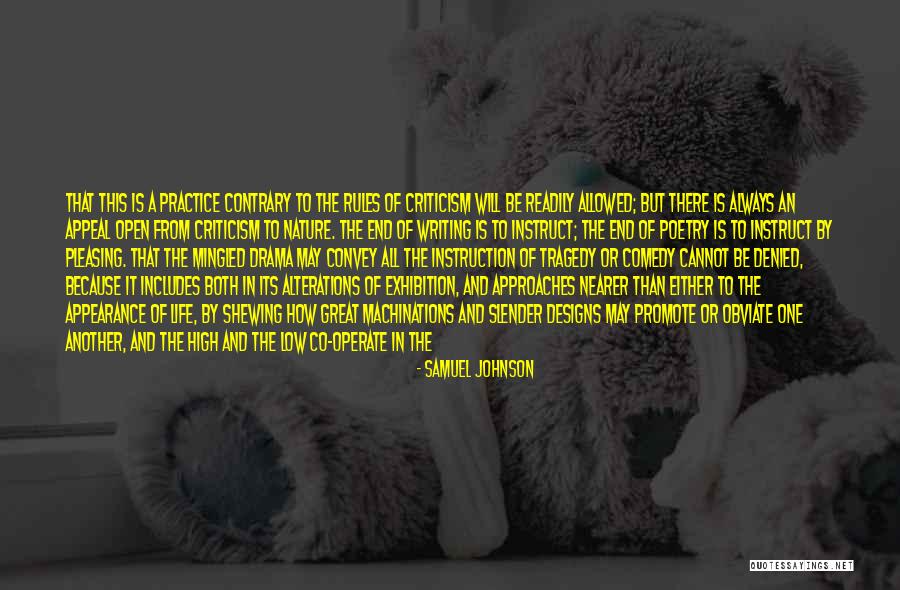
That this is a practice contrary to the rules of criticism will be readily allowed; but there is always an appeal open from criticism to nature. The end of writing is to instruct; the end of poetry is to instruct by pleasing. That the mingled drama may convey all the instruction of tragedy or comedy cannot be denied, because it includes both in its alterations of exhibition, and approaches nearer than either to the appearance of life, by shewing how great machinations and slender designs may promote or obviate one another, and the high and the low co-operate in the general system by unavoidable concatenation. — Samuel Johnson
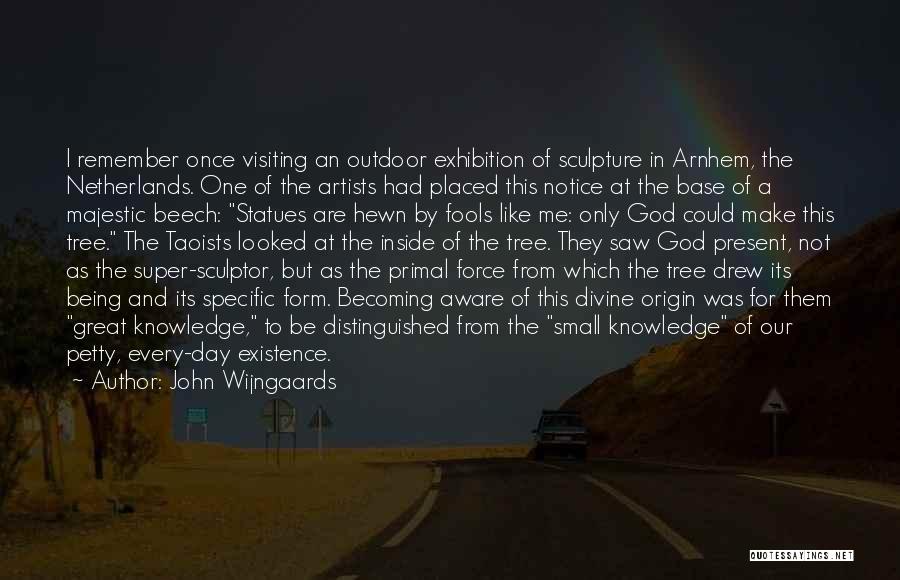
I remember once visiting an outdoor exhibition of sculpture in Arnhem, the Netherlands. One of the artists had placed this notice at the base of a majestic beech: "Statues are hewn by fools like me: only God could make this tree." The Taoists looked at the inside of the tree. They saw God present, not as the super-sculptor, but as the primal force from which the tree drew its being and its specific form. Becoming aware of this divine origin was for them "great knowledge," to be distinguished from the "small knowledge" of our petty, every-day existence. — John Wijngaards
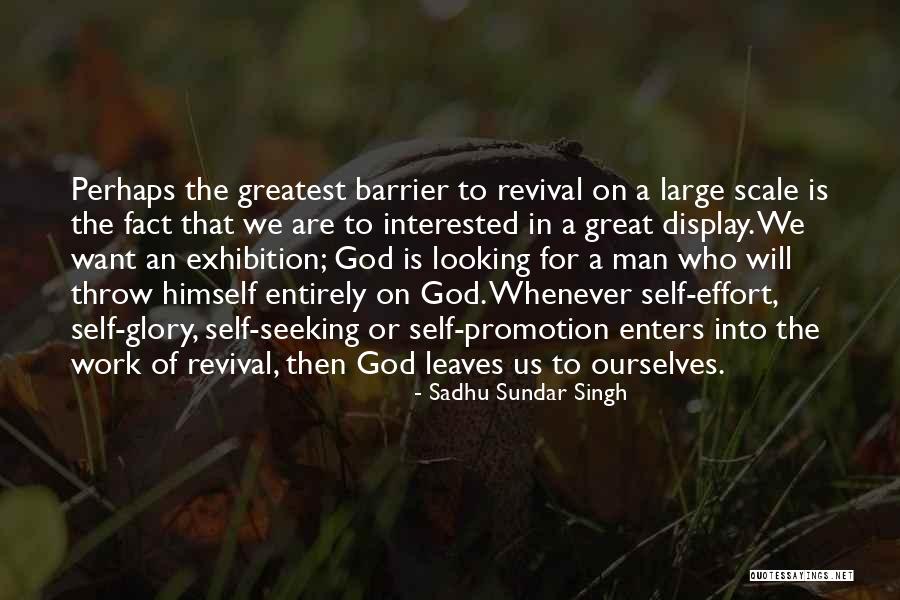
Perhaps the greatest barrier to revival on a large scale is the fact that we are to interested in a great display. We want an exhibition; God is looking for a man who will throw himself entirely on God. Whenever self-effort, self-glory, self-seeking or self-promotion enters into the work of revival, then God leaves us to ourselves. — Sadhu Sundar Singh

The great proliferation of museums in the nineteenth century was a product of the marriage of the exhibition as a way of awakening intelligent interest in the visitor with the growth of collections that was associated with empire and middle-class affluence. Attendance at museums was as much associated with moral improvement as with explanation of the human or natural world. — Richard Fortey
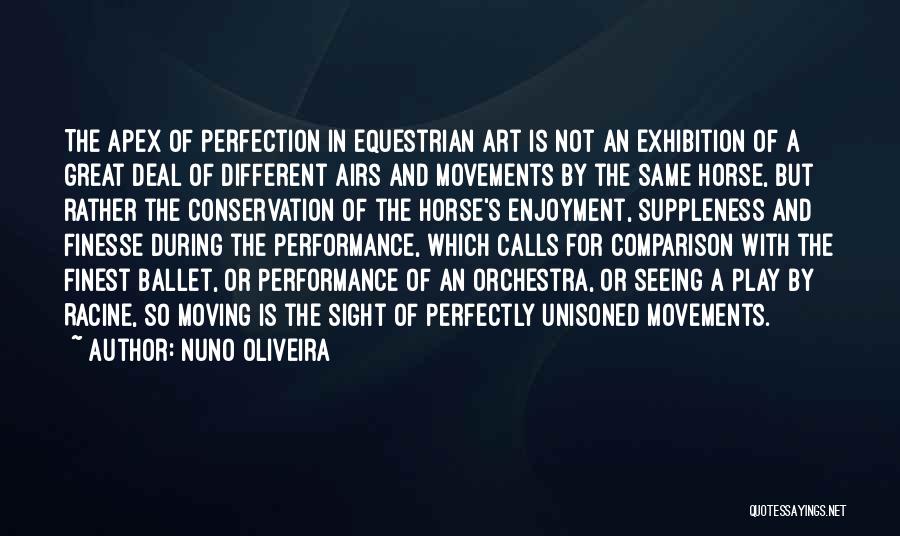
The apex of perfection in equestrian art is not an exhibition of a great deal of different airs and movements by the same horse, but rather the conservation of the horse's enjoyment, suppleness and finesse during the performance, which calls for comparison with the finest ballet, or performance of an orchestra, or seeing a play by Racine, so moving is the sight of perfectly unisoned movements. — Nuno Oliveira
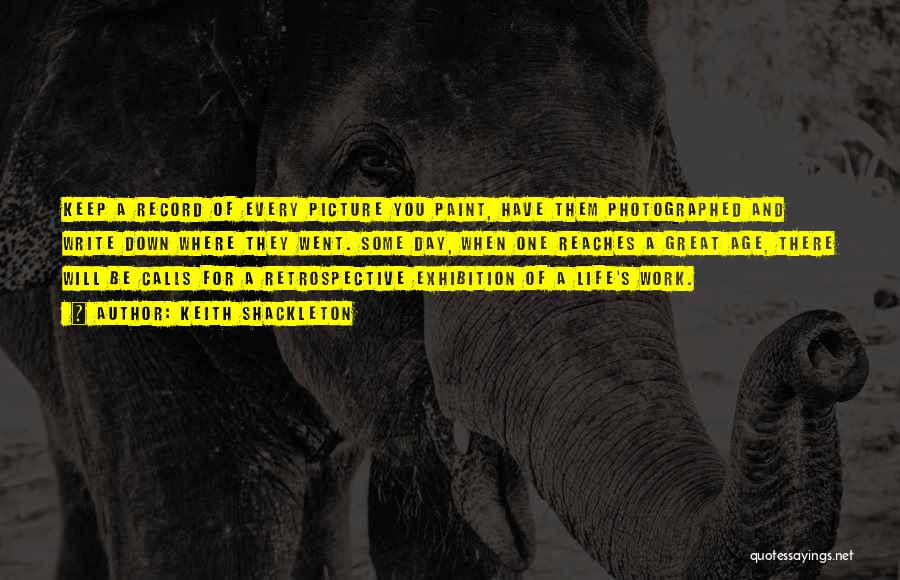
Keep a record of every picture you paint, have them photographed and write down where they went. Some day, when one reaches a great age, there will be calls for a Retrospective Exhibition of a life's work. — Keith Shackleton
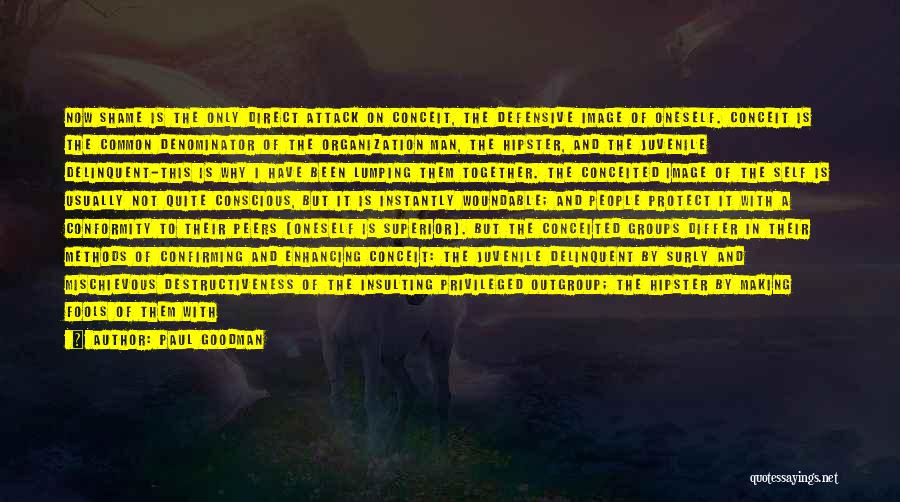
Now shame is the only direct attack on conceit, the defensive image of oneself. Conceit is the common denominator of the Organization man, the hipster, and the juvenile delinquent-this is why I have been lumping them together. The conceited image of the self is usually not quite conscious, but it is instantly woundable; and people protect it with a conformity to their peers (oneself is superior). But the conceited groups differ in their methods of confirming and enhancing conceit: the juvenile delinquent by surly and mischievous destructiveness of the insulting privileged outgroup; the hipster by making fools of them with token performances; the Organization Man by status and salary. To his inner idol, they sacrifice the ingenuous exhibition and self-expression that could make them great, effective, or loved in the world; but that can also be shamed if it is mistaken, out of place, or disproportionate. — Paul Goodman





